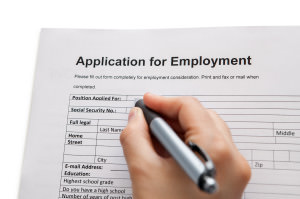Blogs
 When filing for bankruptcy, you don’t want to pay too much for an attorney. You also don’t want to pay too little.
When filing for bankruptcy, you don’t want to pay too much for an attorney. You also don’t want to pay too little.
There are about a dozen bankruptcy attorneys who routinely file Chapter 7 cases in New York City. When it comes to Chapter 13, there are maybe half that number.
Looking at those of us with the most practical experience, you’ll see some trends.
We’ve all been practicing bankruptcy law for more than a decade. We all take on difficult issues when necessary, and have a good working relationship with the trustees.
And on the continuum of legal fees, we charge about 20% more than most of the other bankruptcy attorneys.
Why is that? And how much should you expect to pay for a lawyer if you’re in New York City?
Look For Competence And Experience First
Experience doesn’t translate into competence – just because you’ve been doing something for a long time doesn’t necessarily mean you’re any good at it.
That’s why you need to look for experience as well as competence. That maximizes the chance that you’re getting a bankruptcy lawyer who’s been around the block a few times and has a good relationship with the court and the trustees.
Your first step is to look up the attorney on the Unified Court System’s attorney search website. Every lawyer in New York is listed there, and the system will tell you how long he or she has been licensed in New York State.
From there, hit Google and type in the attorney’s name. Look at every possible review site to see what people are saying about him or her. It’s not a hard-and-fast rule, but someone with no reviews and no online footprint is suspicious in my book. In that sense, a bad review is almost as useful as a good one – at least it shows that the lawyer’s active in the field.
Taking a few minutes on these two steps won’t solidify your decision, but it will narrow the field a bit.
See Also:
Get A Feel For The Lawyer
You’re going to want to make a few phone calls to get a sense for the attorney as well as the way they run their practice.
Is there an office staff, or is the bankruptcy attorney a true solo? There are benefits to both set-ups, as well as downsides.
Does the attorney provide a lot of information on a website, blog or social media platform? If so, can you understand it or is it all densely-packed legalese that makes your head swim?
How about industry associations? Certifications and extra educational programs? These can be proof of an attorney who takes the field seriously.
Expect To Pay For Advice
Lots of bankruptcy attorneys in New York offer free consultations in one form or another. That consultation is typically a very broad overview of bankruptcy options, and seldom a deep dive into your specific problem.
There’s a reason for that. Advice and analysis takes some time, and requires a deep understanding of your situation. If a bankruptcy attorney is giving that away for free, you’ve got to question the value of what you’re getting.
After all, you get what you pay for.
What’s The Range Of Legal Fees?
A Chapter 7 bankruptcy from an experienced and competent bankruptcy lawyer in New York City should run you somewhere in the $2,500 – $3,000 range, more if you have significant assets or own a business.
For Chapter 13 cases, the fee range should be in the $6,500 – $7,500 range and cover all of the typical steps involved in handling your case for the entire 3-5 year Plan period.
See Also:
- How Much It Costs To File For Bankruptcy
- Why Chapter 7 Bankruptcy Legal Fees Need To Be Paid Before You File
- How The Bankruptcy Court Keeps You From Getting Overcharged
A Tough Decision That’s Worth It
I know you don’t have a ton of spare cash sitting around waiting to be spent on some fancy-pants lawyer.
You’ve got to balance reality with the marketplace, and get the best lawyer you can afford.
But if you make your decision based solely on cost then you may end up getting exactly what you paid for.
What do you think? Have you filed for bankruptcy in New York with a lawyer? If so, sound off in the comments section to tell us how much you paid – and if it was worth it.
 Debtors have the option of filing “pro se” (Latin phrase meaning for oneself), but they are warned the process includes levels of complication when tackled without a bankruptcy attorney. Some think the process is simple since you can easily download forms required online to get your case filed. Although if you fail to file the [...]
Debtors have the option of filing “pro se” (Latin phrase meaning for oneself), but they are warned the process includes levels of complication when tackled without a bankruptcy attorney. Some think the process is simple since you can easily download forms required online to get your case filed. Although if you fail to file the [...]
 Short on funds? If you’re in California, don’t write a check unless you know you can cash it.
Short on funds? If you’re in California, don’t write a check unless you know you can cash it.
You’ve got $11 left in your checking account and the cash register at the grocery store in Los Angeles shows a balance due of $108.14.
There’s not much you can pull off the conveyor belt.
There’s no available credit on your cards. The car needs gas.
Payday is next week.
So you pull out your checkbook, cross your fingers and write a check.
Bad move. Even worse under California law.
Your Bank Won’t Be Happy
If you write a check that you can’t cover, your bank may pay the check and issue an overdraft fee. If you’re not so lucky, the bank will dishonor the check and send it back to the store you made your purchase from.
If the bank decides to return the check, you’ll get a letter from the store demanding immediate payment. The store might also demand a fee for the bounced check. If you fail to pay within a specified time, usually seven days, the merchant can sue you. If that happens, you might end up having to pay two or three times the amount of the check, as well as other fees.
Even worse, if this happens more than a couple of times, the bank may choose to close your account. Since accounts that are closed for cause are reported to ChexSystems, this can make it incredibly difficult to open another account elsewhere.
In California, A Bad Check Can Mean Criminal Charges
Under California law, writing a bad check may be a crime under Penal Code 476a. Charges may be filed either as a misdemeanor or a felony – it depends on the prosecutor’s choice.
If it’s filed as a misdemeanor, you could be looking at up to one year in a county jail and a maximum fine of $1,000. If you’re convicted as a felony then you could get up to three years in jail and a maximum fine of $10,000.
There are possible civil penalties as well. The payee (that’s the person or company that you wrote the check to) can sue you for the amount of the check in addition to damages of up to $1,500.
Here’s a good recap of Penal Code 476a.
Can Bankruptcy Help?
If you’ve bounced a check, filing for bankruptcy may allow you to wipe out the fees and amounts due. The vendor may have a good reason to file a complaint with the bankruptcy court to keep you from discharging the debt, but that’s something we can talk about before filing a bankruptcy case for you.
If you’ve been prosecuted under the California bad check law, a bankruptcy won’t wipe out the fines. A Chapter 13, however, may be a good way for you to repay the fines and penalties over time.
The civil penalties, however, may be able to be wiped out in bankruptcy. Again, the vendor may be able to fight your ability to discharge the debt so you’ll want to have your lawyer assess the risk in advance of filing.
See Also:
Don’t Write A Bad Check In California
If you’re short on cash, writing a check you can’t cover may be a tempting solution.
But it’s not a solution. It’s an invitation to bigger problems.
Don’t do it.
 In most cases, you cannot be discriminated against because you filed for bankruptcy protection. There are agencies and businesses that may not deny, suspend, or revoke opportunities or privileges because of a bankruptcy filing. Yet, keep in mind there are a few establishments where rules are not as strict depending on the entity. It is [...]
In most cases, you cannot be discriminated against because you filed for bankruptcy protection. There are agencies and businesses that may not deny, suspend, or revoke opportunities or privileges because of a bankruptcy filing. Yet, keep in mind there are a few establishments where rules are not as strict depending on the entity. It is [...]
 Members of the military get certain protections when it comes to federal student loans.
Members of the military get certain protections when it comes to federal student loans.
Over the years I’ve represented a number of people in the Armed Forces. Two things that blow my mind are how little they get paid to serve our country, and how many of them are burdened with student loans.
Student loans are bad enough for people working for a living, but when it comes to the military it’s often a case of juggling finances to keep the federal student loans up to date.
Thankfully, the government has some ways to make it easier to bear the burden.
Deferring Federal Student Loans While On Active Duty
If you’re called to active duty (or performing National Guard duty) during a war, military operation, or national emergency then you may be eligible to defer federal student loan payments.
Your deferment begins at the time of mobilization and continues for up to 180 days following qualifying service.
If you took out your student loans – private or federal – before you entered the military or were called to active duty, the Servicemembers Civil Relief Act limits the interest rate on your loans to 6% during your active duty military service.
In addition, if you have a Direct Loans first disbursed on or after Oct. 1, 2008 then no interest will accrue on your Direct Loans for up to 60 months of active duty or while performing qualifying National Guard duty during a war, other military operation, or national emergency and are serving in an area of hostilities qualifying for special pay.
If You’re Enrolled In School When You’re Called To Active Duty
Under the College Cost Reduction and Access Act (CCRAA), if you’re a member of the National Guard, Armed Forces Reserve, or the Armed Forces in retired status, you are eligible for a 13 month period of deferment on repayment of your Perkins loans following the completion of your active duty military service.
This deferent applies only if you were enrolled in a postsecondary school at the time of, or within six months prior to, your activation.
Public Service Loan Forgiveness
Under the Public Service Loan Forgiveness Program you can have your federal student loans completely wiped out if you have:
- made 120 regular payments on your federal student loans;
- while employed full-time by the U.S. Military or by certain other types of employers.
Payment Plans And Consolidation
Consolidation of your federal student loans may lower your payments due.
In addition, you should look into the possibility of extended repayment options, income-based repayment, and other ways of bringing the payments in line with your income.
See Also:
- Federal Student Loan Standard Repayment Options
- Income-Based Repayment Options
- Pay-As-You-Earn Program For Federal Student Loans
What About Private Student Loans?
Remember that the Servicemembers Civil Relief Act limits the interest rate on private student loans to 6% during your active duty military service.
Unfortunately, there are no other formal programs to help you. That said, some lenders may be in a position to work with you on payments during your active duty period.
See Also:
Look Into Options And Maximize Your Protection
If you’re serving the country, the last thing you should be worried about are your student loan problems.
Your loved ones, your finances and your professional responsibilities come before anything else.
Looking into your options will help keep you out of trouble with your student loans. You serve your country; always remember to serve yourself as well.
Jeff in today's Advertiser.
My name is Jeff McLeod, and I live in Montgomery.
 A popular gift shop located just blocks away from the White House has filed for bankruptcy protection. The shop known as the “Official White House Gift Shop” claims it is unable to pay their creditors with outstanding liabilities in the hundreds of thousands of dollars. The shop is known for selling memorabilia and commemorative items [...]
A popular gift shop located just blocks away from the White House has filed for bankruptcy protection. The shop known as the “Official White House Gift Shop” claims it is unable to pay their creditors with outstanding liabilities in the hundreds of thousands of dollars. The shop is known for selling memorabilia and commemorative items [...]
 SoFi is turning the student loan market upside down with a mission to help borrowers mired under the weight of student debt.
SoFi is turning the student loan market upside down with a mission to help borrowers mired under the weight of student debt.
The company, founded at Stanford University in 2011, aims to get wealthy alumni to lend to the next generation of graduates at rates that are lower than those offered by either private or federal student loans. Variable rates are as low as 2.94%, and fixed rates are as low as 4.99%.
SoFi currently works with graduates of 100 schools, and recently secured $500 million in financing to continue expansion. Interesting to note that one of the companies helping to fund SoFi is ECMC, the student loan guarantor.
What’s interesting about SoFi isn’t so much the refinancing of student loans, but rather how the company is leveraging the power of social media as part of its business model. Students are matched with potential lenders based on shared interests, and alumni act as informal mentors to help connect their borrowers with job opportunities.
By using the social angle, the SoFi lenders are maximizing their chances of getting paid back. Lenders help borrowers get jobs, which in turn enables those graduates to repay their student loans.
About 3,000 students have signed up for a SoFi loan so far, and astoundingly there have been no defaults to date. It’s a small sample of borrowers from only the best schools, but the idea has massive appeal.
There aren’t any current plans to expand SoFi to more schools right now because the founder is concerned about schools charging more for the education than the value provided to graduates. That’s also telling, I think.
It remains to be seen as to whether SoFi can make a huge dent in the world of student loans, but the company’s vision may well serve as a model for alumni networks of other schools to do something similar.
As for students entering colleges and graduate schools, the question of the vibrancy of alumni networks may need to be addressed before the start of classes.
More about SoFi:
SoFi Website
SoFi Announces Partnership with Career Athletes
SoFi raises $500M to fix the broken student loan market
 Being in debt is a simple equation – income is not enough to cover expenses including paying off the bills.
Being in debt is a simple equation – income is not enough to cover expenses including paying off the bills.
With that in mind, lots of personal finance experts recommend that you get a second job. Dave Ramsey, for example, extolls the virtues of delivering pizza at night to help end your bill problems.
Before you start thumbing through the Help Wanted ads, best to consider whether a second job is a good idea for you.
Why A Second Job Makes Sense
If you’re in debt, the income that comes with a second job is tempting. Every penny you come home with can go towards debt reduction, helping you climb out of the financial hole that much more quickly.
Your existing expenses continue to get paid through your primary source of income, and things are better overall.
As an added bonus, a second job is typically less stressful than the daily 9-to-5. That means you won’t bring home the stress that comes with your primary job.
But A Second Job Is Not All Wine And Roses
As Notorious B.I.G. said, “mo’ money, mo’ problems.” He wasn’t kidding.
In fact, here are just a few reasons why getting that second job may not be the best move:
Less time to spend with your family. If you’ve got kids, forget seeing those soccer and baseball games. Evenings by the television with your spouse? Forget those, too. Even if you’re not at work, you’re sure to be more exhausted when you’re physically present.
A smaller paycheck. No more overtime for you, my friend. Rather than getting time-and-a-half from your first job, you’re going to need to get out on time or you’ll be late for Job Number Two.
Less time for your health. If you’re working two jobs, chances are you’ll have less time to exercise. 16 hours a day at work doesn’t leave much time or energy to put on those running shoes and hit the pavement. In fact, working the night shift has been proven to lead to weight gain and diabetes.
An angry boss. The boss of your day job may not take too kindly to your evening work, thinking that it shows less of a commitment to your primary employment situation. Some workplaces require prior authorization to take on a second job or forbid it altogether.
Extra costs. When you shuttle back and forth between two jobs, you’ve got to tack on extra expenses for gas money and food.
More for your (un)favorite Uncle. A higher income may put you into a higher tax bracket. That means more money flows out of your pocket and goes to Uncle Sam, so be careful.
Balance The Books Before Sending A Resume
Getting a second job may be a good way to end your money problems, but you can’t be sure until you’ve run all the numbers.
Making a bed decision could cause you more headache than it solves.

 Bringing you the most up-to-date news, tips and blogs throughout the web. Here’s your Bankruptcy Update for October 24, 2013 Will Detroit actually enter bankruptcy? Oncor should be well protected from bankruptcy, Moody’s says 11 people who now control Detroit’s bankruptcy future
Bringing you the most up-to-date news, tips and blogs throughout the web. Here’s your Bankruptcy Update for October 24, 2013 Will Detroit actually enter bankruptcy? Oncor should be well protected from bankruptcy, Moody’s says 11 people who now control Detroit’s bankruptcy future  Updated daily, this blog will keep you informed on the latest bankruptcy news!
Updated daily, this blog will keep you informed on the latest bankruptcy news!  Learn more about how Bankruptcy works and what you need to know.
Learn more about how Bankruptcy works and what you need to know.